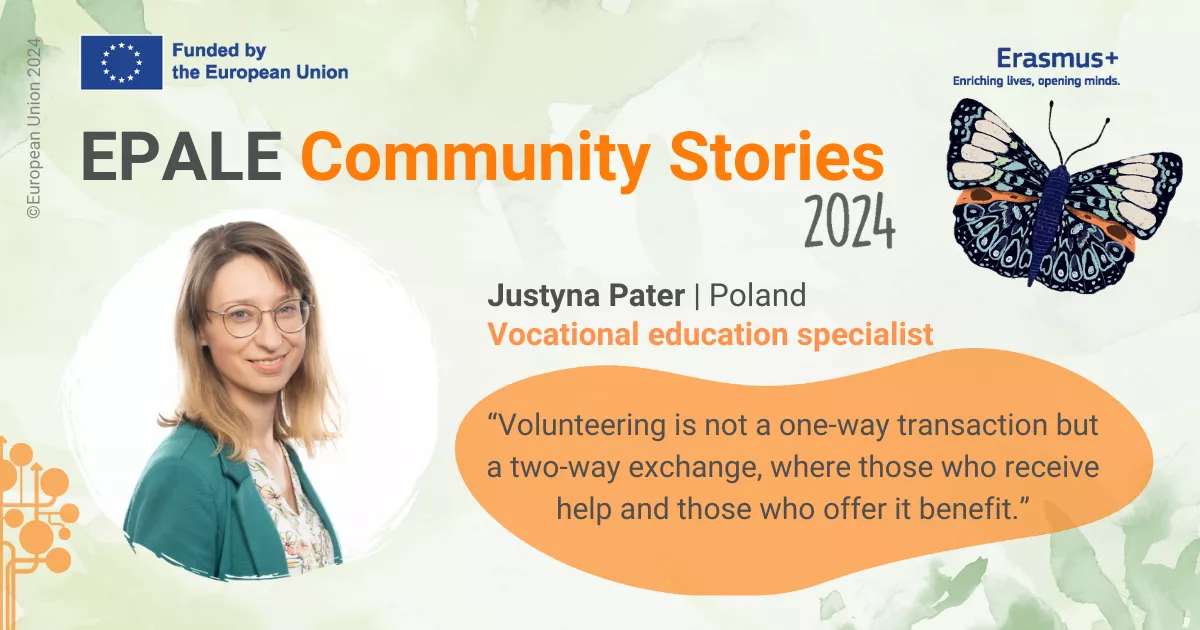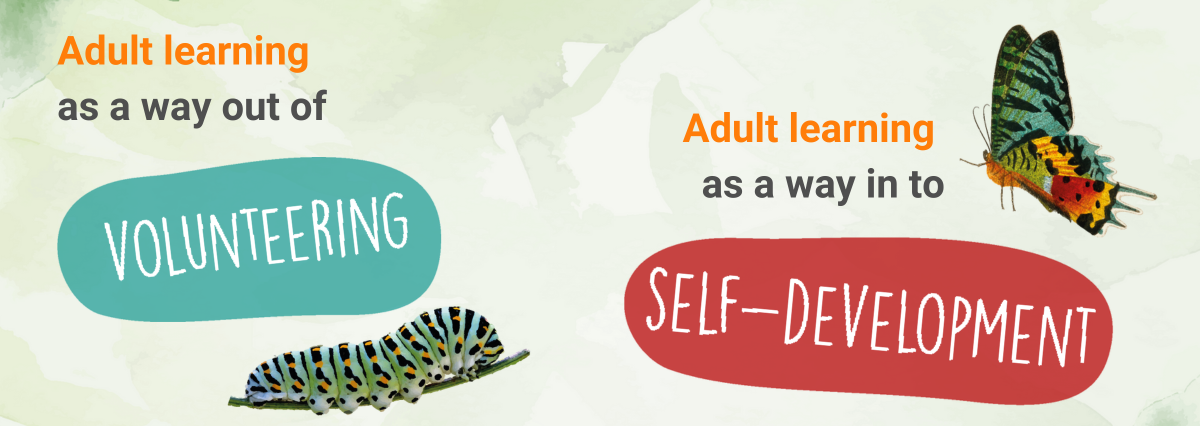Justyna Pater: Why do you want to become a volunteer?

Short bio
Master's degree in psychology, a development and vocational education specialist, an employee in a team for voluntary service in a local government unit in Wrocław. I am involved in supporting the development of volunteers and volunteer coordinators. I have experience in organising educational events and activities, and cooperate with non-governmental organisations and municipal institutions. I am interested in career counselling...
My story
Hey there folks! Justyna Pater is the heroine of this story!
I have been working in the team for voluntary service for several years. What does this job entail? Giving information, advice, training, organising events, and meetings. Listening to and observing those who want to become volunteers and those already engaged in that field. Thanks to this, I have understood and learned several things.
- First, volunteering is diverse, and finding an activity closest to your abilities, availability, and needs is possible.
- Second, volunteering is not a "one-way transaction." It is a kind of two-way exchange, where those who receive help and those who offer it benefit.
- Third, based on volition, volunteering creates a space for a sense of meaning, authenticity, and self-fulfillment.
Why do you want to become a volunteer? This is one of the key questions. Some people start volunteering because they want to help others; they want to feel needed. There are those for whom a sense of community and interaction with people sharing similar views and values are important. Others want to develop their interests and passions. There are many reasons to get involved in voluntary activities. And they are all good.
What are the benefits of volunteering? The experience can be very uplifting, developing, and positively charged. It can teach us a lot. About ourselves, about others. I often hear from volunteers that it was an important lesson for them. Through volunteering, they met fantastic people and made friends. They broadened their horizons, learned many interesting things, or discovered their talents. They started to appreciate what they have, enjoy the little things, open up to the world, and take bolder steps. I also met individuals who started their professional careers with volunteering. In their case, volunteering turned out to be the first step in their professional development. I also observe young volunteers, teenagers from schools, who actively and enthusiastically want to change the world. The one closest to them is the local one, but they often aim higher and further. They get involved in item collections for those in need, notice the needs of those who find life difficult for various reasons, support the natural environment, participate in charity campaigns, initiate and implement multiple aid projects themselves with heads full of ideas and that incredible youthful energy.
Among young volunteers, some are already revealing leadership skills. And I am sure I will hear about them again more than once. I appreciate the work not only of volunteers but also of those who supervise and coordinate them. Volunteering, especially on a large scale, needs a framework, organisational support, and process management. A watchful eye and a kind word from someone who can motivate, inspire, and help in a difficult situation. The competence development aspect of volunteers is important to me. Yes, yes - volunteers need training too. In very different areas and scope.
In first aid, assertiveness, working with people with disabilities and seniors, project management, or teamwork. Well-selected and well-planned educational activities not only improve the volunteers' skills but also impact the entire organisatio n or institution. Training, workshops, and supervision. This is worth taking care of when working with volunteers. It is also crucial to make volunteers aware that being mindful of themselves and caring for their needs is not bad. A volunteer does not have to be a superhero who saves the world 24 hours daily.
A self-conscious approach to helping means we do not sacrifice ourselves for others exceeding our limits but measure our strength for intentions. We give, but we also receive. We are there for others, but we do not forget about ourselves. We help, but not at our own expense.






